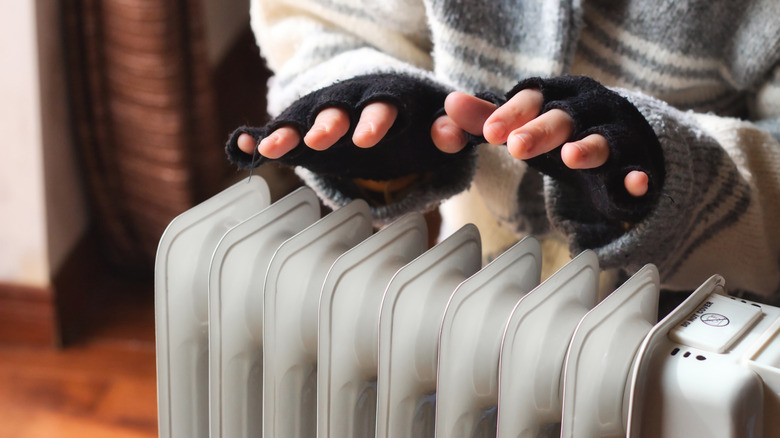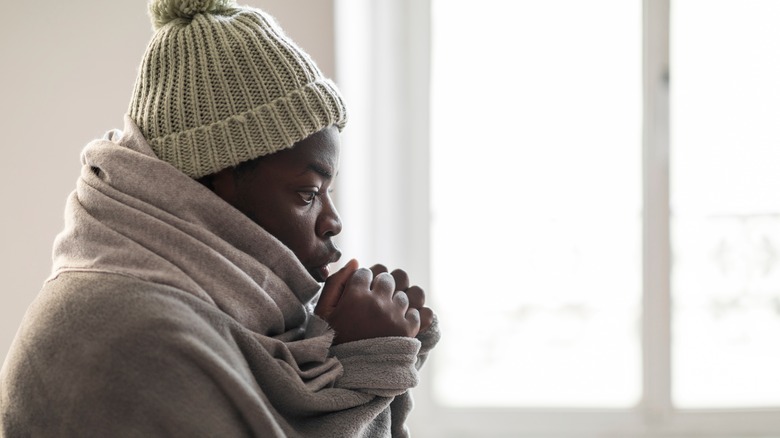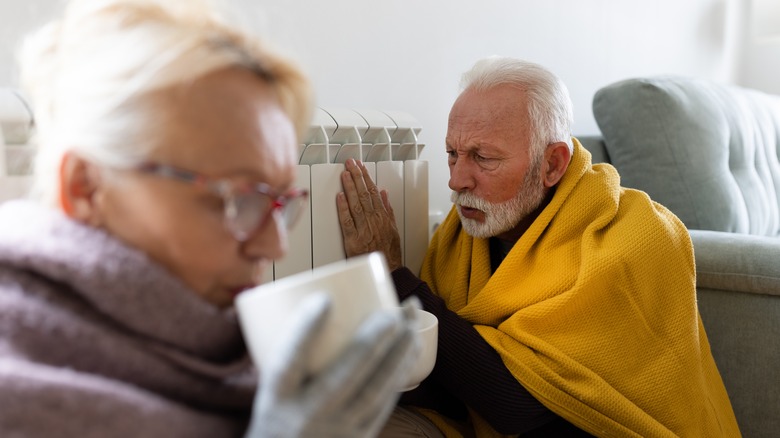What Happens To Your Body In A Cold House?
When temperatures begin to drop during the colder months of the year, we feel it immediately. We feel it in the air, in our bodies, and especially in our house. Many of us reach to crank up the heat during this time of year, but in the event of a power outage, a broken furnace, lack of insulation in the home, or difficulties paying a gas or electric bill, plunging temperatures can take a physical and mental toll on our health.
Research published in the World Health Organization's (WHO) Housing and Health Guidelines states that cold homes play a role in increased rates of death and disease during the winter months. While your first thought may be that hypothermia or frostbite would be of greatest concern, research shows that exposure to low indoor temperatures has also been linked to hypertension and asthma. Because cold air prompts lung inflammation, those exposed to low temperatures may be at an increased risk for asthma attacks or aggravation of chronic obstructive pulmonary disease (COPD) symptoms. Additionally, when exposed to cold air, it also hinders our blood flow by prompting the constriction of blood vessels. As a result, some individuals may be more susceptible to cardiovascular conditions, such as stroke, ischaemic heart disease, and more. But there are numerous other ways in which sitting in a cold, unheated house can physically affect the body too.
At what point does cold start to affect the body?
In 2022, Inside Health Presenter of BBC Radio 4 James Gallagher reported via BBC on the results of an experiment in which he was to sit in a cold room for a half-hour as the temperature progressively dropped from nearly 70 degrees Fahrenheit to 50 degrees. Around 64 degrees Fahrenheit (or 18 degrees Celsius) Gallagher noted the hairs on his arms beginning to rise in order to conserve body heat. "Science tells us that 18 degrees is the tipping point ... the body is now working to defend that core temperature," said Professor Damian Bailey, from the University of South Wales, who conducted the experiment (via BBC). Over the course of the whole experiment, results showed a 20% decrease in blood flow to the brain, an increase in heart rate from 55 to 65 beats per minute, and a slow in cognition — in which it took Gallagher 20 more seconds to complete a puzzle than it took him at the start of the experiment.
As previously mentioned, 18 degrees Celsius is considered a tipping point for the body (via BBC). As per the WHO's Housing and Health Guidelines, however, 18 degrees Celsius is considered the minimum temperature at which indoor temperatures are still considered safe for humans. However, the WHO highlights a potential need to raise the indoor temperature minimum guidelines, particularly in the interest of children, the elderly, and those with various health conditions.
Wintertime safety tips
Research shows that living in a cold, unheated house also has the potential to negatively impact our mental health. A 2022 study published in Social Science and Medicine used self-reported data from participants in the U.K. Household Longitudinal Study to gauge the degree to which living without adequate heat affected one's mental wellbeing. The research model showed that those who had reported having no mental distress at the start of the survey were twice as likely to experience severe mental distress when transitioning into living in a cold house. Similarly, those who reported being on the brink of mental distress at the beginning of the survey were at a three times' higher risk for severe mental distress upon moving into a cold house.
Because cold indoor temperatures can pose a significant risk to our health, the U.S. Centers for Disease Control and Prevention (CDC) advises taking extra precautions during winter months, particularly when it comes to vulnerable populations. For example, because older adults generate less body heat, it's important to check on elderly relatives and neighbors to ensure that their house is sufficiently heated. Other vulnerable populations include babies. The CDC reports that infants should not be left to sleep in a cold room, as they lose body heat more readily. Instead, wrap the child in warm clothing items, such as footed pajamas, and try to seek accommodations elsewhere if the home is not able to be heated.



